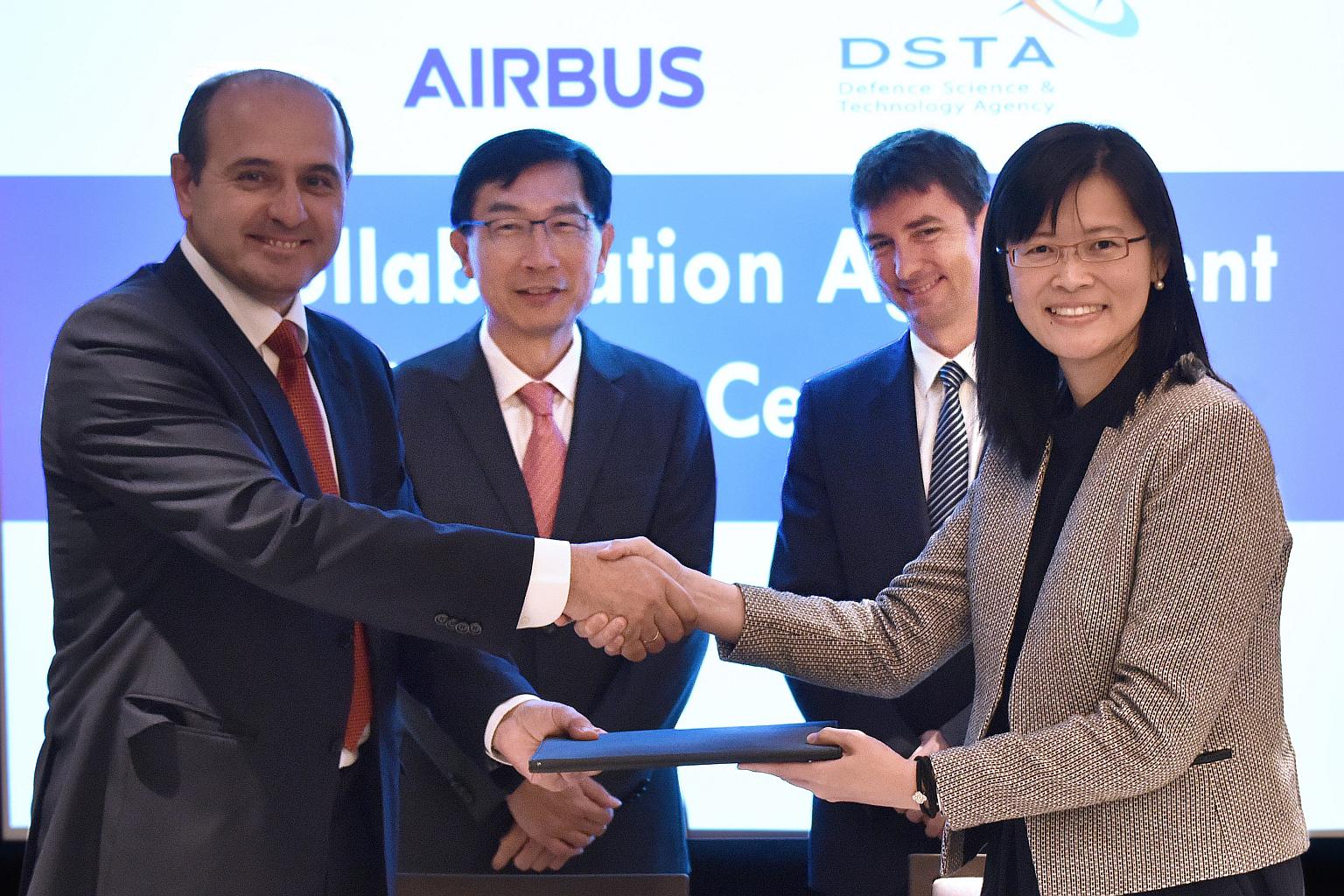Singapore signs agreements with Britain and aviation firms to strengthen air force, boost counter-terrorism measures
Sign up now: Get ST's newsletters delivered to your inbox

Present at the signing ceremony were (from left) Mr Javier Rivera, vice-president of transport and mission aircraft services at Airbus Defence and Space; Mr Tan Peng Yam, chief executive of DSTA; Mr Johan Pelissier, head of Airbus Defence and Space, South-east Asia; and Ms Ngiam Le Na, director of air systems at DSTA.
PHOTO: GOV.SG
Follow topic:
SINGAPORE - A stronger air force, better counter-terrorism measures and a more efficient military logistics system are on the cards, as Singapore seeks deeper collaboration with Britain and two aviation firms.
On Thursday (June 28), the Singapore Defence Science and Technology Agency (DSTA) announced that it has inked two separate memorandums of understanding (MOUs) with Boeing and Airbus Defence and Space.
According to a DSTA statement, this is the first time that the agency and Boeing have signed a project agreement to start research and development in data analytics together.
The two organisations are working towards a system that identifies trends and insights into aircraft performance, said DSTA chief executive Tan Peng Yam.
"This signifies our emphasis on tapping digital technologies and working closely with the industry to co-develop new capabilities," he added.
The DSTA will also work with Airbus on technologies that better support the Republic of Singapore Air Force's aircraft.
The air force contracts its A330 Multi-Role Tanker Transport and H225M tactical transport helicopters from the aviation firm.
Under the agreement, DSTA and Airbus will pool their engineering expertise to work in areas such as data analytics, augmented and virtual reality and 3-D printing.
On Thursday, the Singapore Defence Ministry also said that is has renewed an MOU with its British counterpart to continue to research, develop and test defence technologies.
Both sides will also explore a deeper collaboration in logistics management, maritime autonomy and counter-terrorism.
Speaking to reporters, Professor Hugh Durrant-Whyte, who represents Britain's Defence Ministry, said that both countries share similar problems.
"When it comes to the way we need to defend our trade routes, the way we wish to deter and de-escalate, as a consequence, we have a lot of technologies that we have and are interested in in common."
An example may be cyber technologies, he added.
The three agreements were signed at the inaugural Singapore Defence Technology Summit, organised by the DSTA.
In his opening address on Thursday (June 28), Deputy Prime Minister Teo Chee Hean urged governments to work more closely with private firms and academia in an increasingly connected world where technology has cut across sectors, brought economies together and blurred national boundaries.
Speaking to about 400 delegates from 17 countries, Mr Teo, who is also Coordinating Minister for National Security, emphasised the importance of finding collaborative ways to handle security issues.
New threats have emerged with a growing dependence on interconnected digital systems, he said, noting that the larger systems are also more vulnerable to attacks.
Attacks can scale up quickly, causing damage across the whole system, he added.
Questioning the adequacy of existing international and country laws to handle such new vulnerabilities, Mr Teo said that "conventional modes of regulation and protective measures will need to be geared up".
One way is to establish new codes of practice and norms for technologies that are becoming ready for deployment, but where there are no international standards.
Mr Teo said: "We are looking forward to working with our international partners, to better understand how to deal with attacks not just on national systems but global systems."

